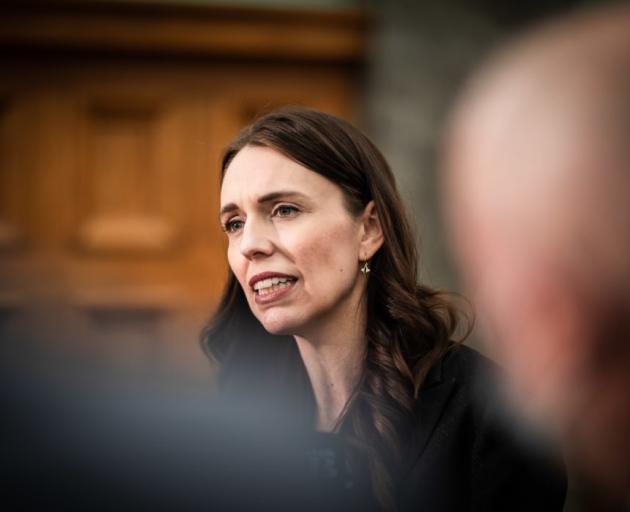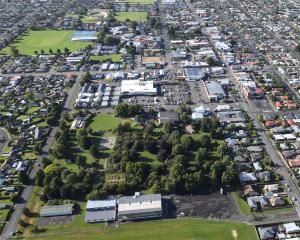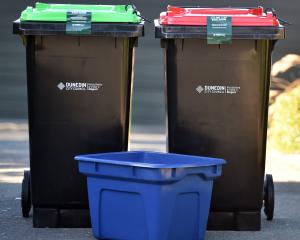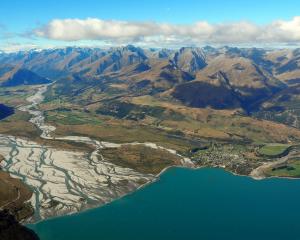

From Prime Ministerial resignations in early January to mini Budgets in the week before Christmas, there has been no shortage of politics to go around.
In a year of resignations — some surprising, some much less so — that of Dame Jacinda Ardern was the biggest and the most surprising.
Yes, anyone watching polls or reading letters to the editor knew that the lustre was wearing thin on the previously insurmountable Labour leader, but looking back now you can’t help but think that she knew that the writing was on the wall and (like Sir John Key before her) that it was better to jump at a time of one’s choosing rather than suffer an undignified fall.
Labour could not capture lightning in a bottle twice, and six years on from the surprise leadership change which catapulted it into government, the personally pleasant but publicly uncharismatic Chris Hipkins could not save his party’s skin.
The same description could equally apply to new Prime Minister Christopher Luxon, who is entirely affable company one-on-one but struggled all year to connect with a mass audience.
What he clearly did have going for him though was that National was not Labour.
During the election campaign Southern Say went to every electorate in the South, and it would be fair to say that the mood for political change was unmistakable.
Discontent took many forms, and was expressed with differing degrees of coherency, but it was obvious that a preponderance of people wanted to sweep out the government to which they had given an unprecedented majority three years earlier.
In the South, National Waitaki MP Jacqui Dean and Labour Dunedin MP David Clark each retired before testing the vagaries of the political tide.
Before election night National decided it did not want long-serving Dunedin list MP Michael Woodhouse on its bench at all any more, in what was a clumsily handled and unnecessarily shoddy exit for a man who remained loyal to the party line to the last and who deserved a more dignified exit ... although at least he has been spared making any more losing wine-related bets in the House.
On election night the tide took out Invercargill Labour list MP Liz Craig, another entirely decent person whose talents her party never quite knew how to utilise to its best advantage.
Southern Say enjoyed covering you all, and wishes you all the best for the future.
Several hours later, the tide brought back in New Zealand First list MP Mark Patterson, who served a term on the backbenches in a coalition which brought Jacinda Ardern to office. His dry wit has already been in evidence back in the House, and he well deserves ministerial rank.
Mr Patterson, part of the inner circle of New Zealand First, knows just how hard it is to get into Parliament, and just how much harder that achievement is when you have been dumped out of Parliament. After a lot of heavy lifting, he has earned a summer break.
As expected, National’s electorate MPs, Penny Simmonds in Invercargill and Joseph Mooney in Southland, easily retained their seats.
Each faces big challenges next year: Ms Simmonds went into politics largely to do away with Te Pukenga and she is now in a position to back her rhetoric with action.
Mr Mooney, in his second term, needs to show he is worthy of greater things than the select committee chairmanship he now holds: there is a large, new and ambitious backbench National must keep happy.
Once of those is Waitaki MP Miles Anderson, who should be very pleased at being named deputy chairman of the primary production select committee. His new career is off to a flying start.
Stuck on the tarmac however are our region’s Labour MPs. Ingrid Leary and Rachel Brooking — who was one of Labour’s few bright lights on a dark election night — at least have the consolation of having retained, or won, their respective electorates.
Rino Tirikatene, conversely, lost the previously regarded safe-as-houses seat of Te Tai Tonga.
All three will now have to decide what role they wish to play as Labour rebuilds.
Tākuta Ferris took Te Tai Tonga for Te Pāti Māori and has already made a splash in the House with a fiery maiden speech. Definitely one to watch.
Hard-working Taieri Green Scott Willis was rewarded for his toil for his party in the South with a winnable list position and win it he did, in no small part thanks to the efforts of his party’s Dunedin candidate Francisco Hernandez.
They individually, and the southern Greens collectively, should be pleased at their efforts: even if they are no longer at the top table, there is once more a Green MP south of the Waitaki.
Last but certainly not least, Act New Zealand also has its first southern MP for some time in the form of Queenstown’s Todd Stephenson.
While his eyebrow-raising list position of four did not translate to ministerial rank, Act have piled the work on Mr Stephenson, who has a big list of committees to sit on and whip duties to fulfil.
Big things are expected of him, and early signs suggest he has the capability to deliver.
And with that, barbecue season now begins officially. Thank you all for reading, Southern Say will return in late January — Parliament is scheduled to resume on January 30.












